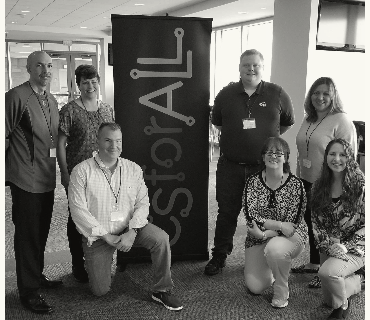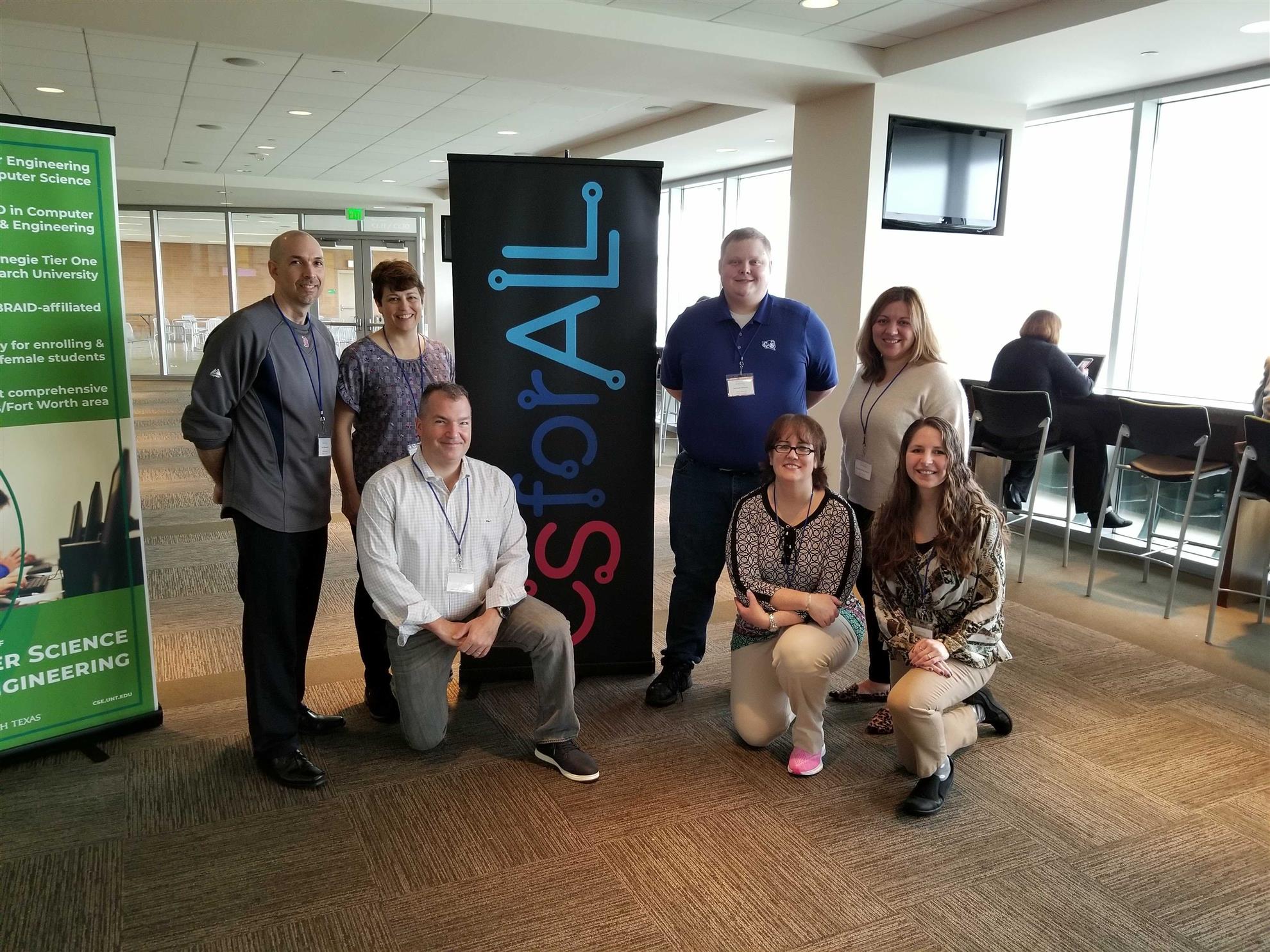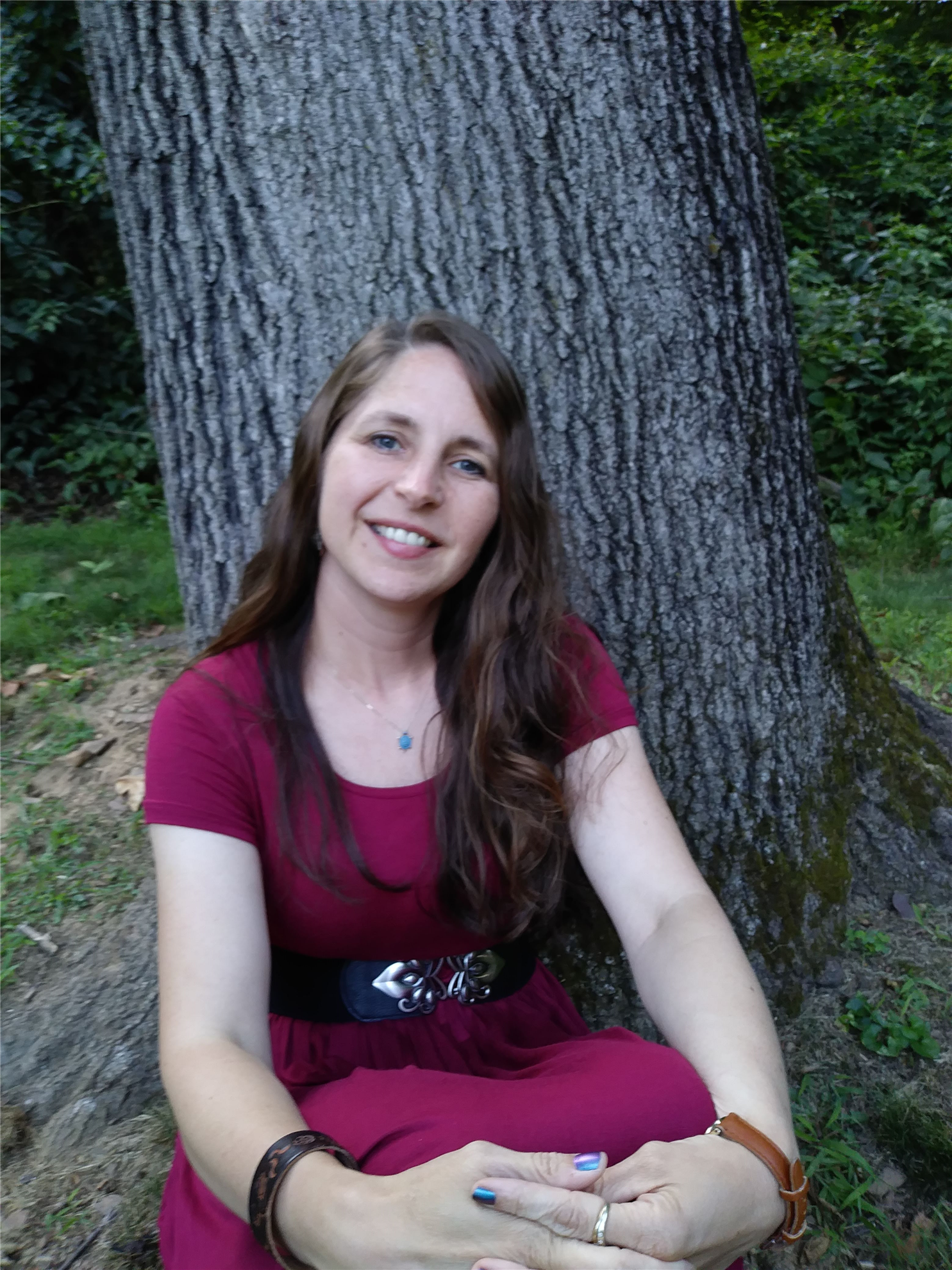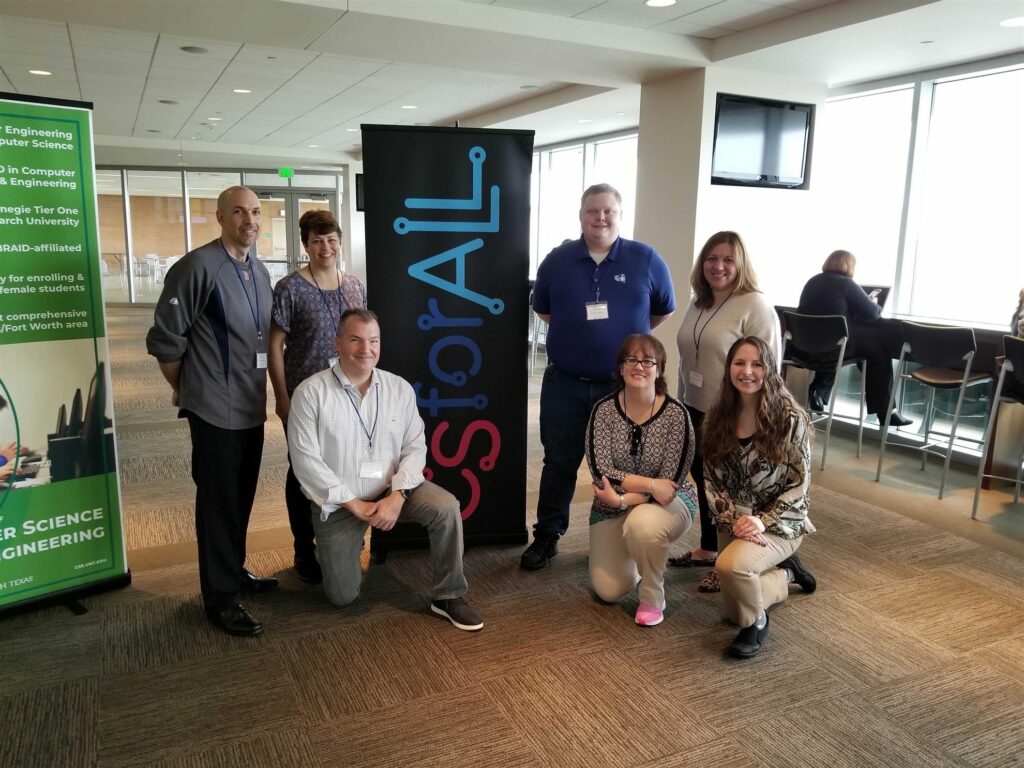
Computer science is an equity issue. We know computer science is a way of thinking that helps to solve problems.
Full Story
Computer science is an equity issue. We know computer science is a way of thinking that helps to solve problems. If it is not available to all, then not only will problems remain unsolved, but (worse) access is inequitable. We, as computer science teachers, are positioned to either fix this inequity or continue to foster it. In October 2019, I had the chance to sit in a room with CSTA Leadership and the nine other CSTA Equity Fellows, all committed to remedying this problem for our future students. In this training session, I had the opportunity to meet with computer science leaders and to focus on my own learning and how I might be able to channel that learning to help others to improve computer science education for all students. On the ride home, I reflected on how motivated, open-minded, and kind people working together from across the country can truly inspire change. Leaving that weekend in Chicago, my commitment to doing what I could as a computer science leader was renewed. I translated this experience into more learning and concrete actions.
In Connecticut, like many other states, computer science implementation varies widely from one district to the next In our small state, there are over 200 separate districts, each with very unique needs and values. I chose to focus my Equity Fellowship project on bringing SCRIPT Training to our state as a way to more systematically integrate computer science for all students. SCRIPT is a series of rubrics developed by CSForAll to give districts guidance on how to design a computer science implementation plan. At the start of SCRIPT Training, districts come up with a vision statement for computer science. By the end of SCRIPT Training, districts come up with their own short-term and long-term plans for next steps to successfully integrate and implement their vision for computer science. These plans are created by each district.
While SCRIPT Trainings exist across the country, my goal was to bring them to Connecticut to improve access for all districts in the state. To do this, I needed to be trained as a Facilitator and I needed help. I reached out to CSForAll and they were kind enough to explain many details to me over a conference call. I learned about the SCRIPT Symposium in January 2020 and was committed to apply as a district. In addition, I tried to involve as many districts as possible in this training. CSTA played a crucial role in helping me to make connections nationally and locally. I reached out to the State Department of Education for points of contact, I spoke with teachers I had known for many years in our CT CSTA Chapter, and I spoke with leaders in my district and other districts. I spoke with Rhode Island CSForRI members who were kind enough to give me guidance and advice. In December 2019, our district learned that we were accepted to the symposium and I was among three individuals who would be trained as facilitators. The most surreal part of the January 2020 training was seeing the team of people from my district working on computer science. District Teams typically consist of administrators, teachers of multiple grade levels, counselors, and library media specialists. In a large system, this combination of people meeting together is very unusual and powerful. Again, I felt inspired and unsettled by how much I did not know. I was reminded, as I was in October, how thoughtful and committed people sitting together can truly begin a movement.
 Since that January meeting, we have been focused on securing funding and understanding what SCRIPT Training means in our large district and statewide. One of the three Facilitators works for ReadyCT, a non-profit organization in Connecticut committed to improving the way in which our students are prepared for our shared future. ReadyCT has taken on the role of grant applications with local businesses. The reason we need funding support is because it is essential that districts do not need to pay for SCRIPT Training. The ideal situation is that districts receive stipends to attend the training. We also need to pay for food, supplies, and salaries. As soon as funding is secured, we are excited to begin offering training to districts. We have started discussing how we would make access to the training an equitable experience for our systems and how we would incorporate culturally relevant practices and equity-based training in all two-day sessions for district teams. The Equity Fellows have helped me considerably in our planning with ideas for how best to implement this training in a fair and equitable way in our state. In my local district, we widened our SCRIPT Team to include more members of our district community and we completed our visioning exercise together. We did the same visioning exercise with our district leadership team in February 2020.
Since that January meeting, we have been focused on securing funding and understanding what SCRIPT Training means in our large district and statewide. One of the three Facilitators works for ReadyCT, a non-profit organization in Connecticut committed to improving the way in which our students are prepared for our shared future. ReadyCT has taken on the role of grant applications with local businesses. The reason we need funding support is because it is essential that districts do not need to pay for SCRIPT Training. The ideal situation is that districts receive stipends to attend the training. We also need to pay for food, supplies, and salaries. As soon as funding is secured, we are excited to begin offering training to districts. We have started discussing how we would make access to the training an equitable experience for our systems and how we would incorporate culturally relevant practices and equity-based training in all two-day sessions for district teams. The Equity Fellows have helped me considerably in our planning with ideas for how best to implement this training in a fair and equitable way in our state. In my local district, we widened our SCRIPT Team to include more members of our district community and we completed our visioning exercise together. We did the same visioning exercise with our district leadership team in February 2020. Since March 13, 2020, many things across the United States have changed. However, our commitment to bringing SCRIPT Training to our state remains. It is almost as if the positive energy and inspiration I absorbed from that October 2019 has translated to my district and state. I am very grateful to the friendships and positive support I have received from CSTA, the other CSTA Equity Fellows, my local district, and the state of Connecticut. Starting with the October training, I knew SCRIPT Facilitator Training and District Training was the next step that Connecticut needed to move forward. I hope that when I see everyone at this summer’s virtual CSTA Conference, I have more good news to share.
If you would like to learn more about CSForAll’s SCRIPT Program, visit their website. Any district can join CSForAll for free; learn how to become a member. For a more broad introduction to SCRIPT, this article would really help you to see the impact.
About the Author
 Jacqueline Corricelli has been a public school educator since Fall 2003. She teaches AP CS A, AP CS Principles, and Cryptography & Cybersecurity at Conard High School in West Hartford, Connecticut. This is a second career for Jackie who, after earning her degree in Mathematics and Statistics, worked three years as a Radar Systems Engineer. Jackie believes that students at all levels can, and should learn computer science. Jackie’s passion for CS education goes beyond the classroom. She is a member of the Connecticut Department of Education CS Advisory Group created to improve access to and define CS education. She works as a Table Leader and Consultant for CS Principles. She is Vice President of CSTA Connecticut. Jackie has a B.A. in Mathematics and Statistics from the University of Connecticut and an M.S. in Mathematics Secondary Education from Westfield State University. She and her family reside in East Granby, Connecticut.
Jacqueline Corricelli has been a public school educator since Fall 2003. She teaches AP CS A, AP CS Principles, and Cryptography & Cybersecurity at Conard High School in West Hartford, Connecticut. This is a second career for Jackie who, after earning her degree in Mathematics and Statistics, worked three years as a Radar Systems Engineer. Jackie believes that students at all levels can, and should learn computer science. Jackie’s passion for CS education goes beyond the classroom. She is a member of the Connecticut Department of Education CS Advisory Group created to improve access to and define CS education. She works as a Table Leader and Consultant for CS Principles. She is Vice President of CSTA Connecticut. Jackie has a B.A. in Mathematics and Statistics from the University of Connecticut and an M.S. in Mathematics Secondary Education from Westfield State University. She and her family reside in East Granby, Connecticut.



